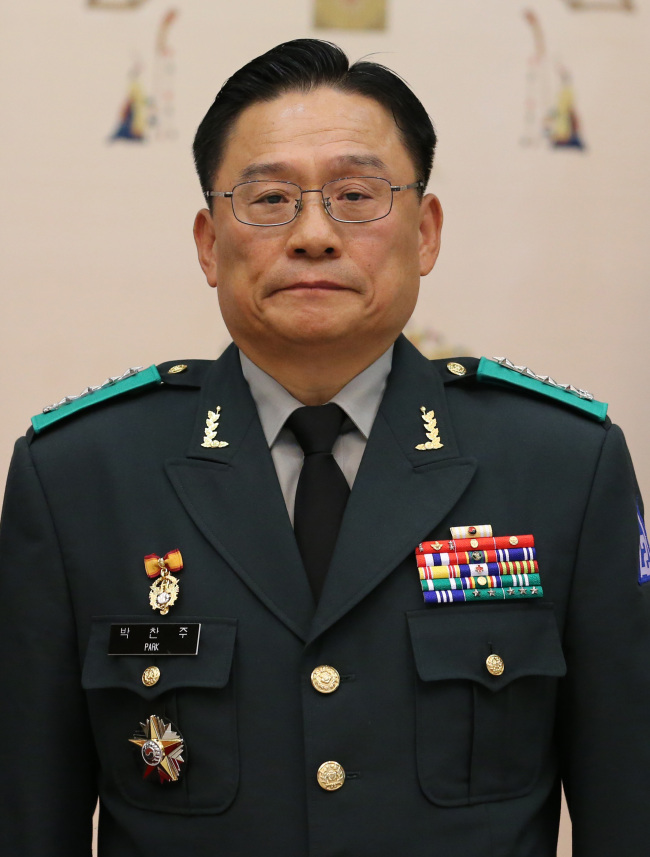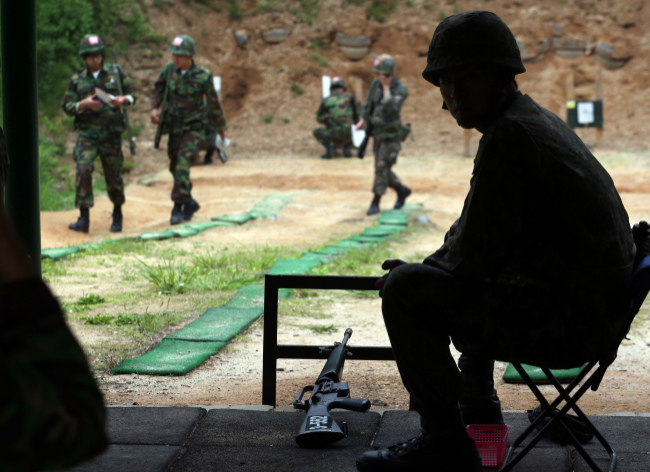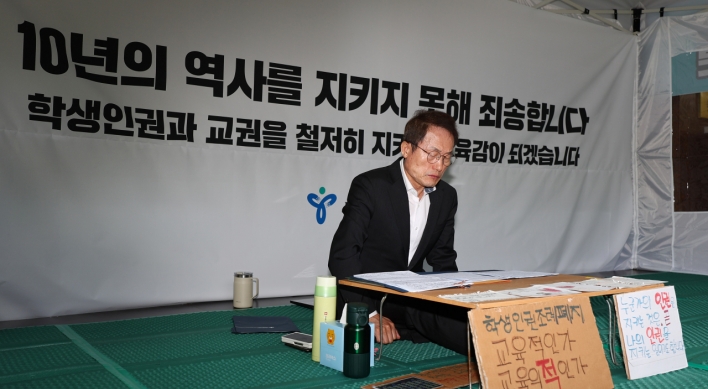[Newsmaker] 'Housekeeping soldiers': ugly face of South Korean military
By Sohn Ji-youngPublished : Aug. 2, 2017 - 16:32
When Kwon Tae-jin (not his real name) joined the Navy after finishing his freshman year at a prestigious university in Seoul, the then-20-year-old had high expectations about spending his mandatory service sailing distant seas.
Having endured six months of basic military training and another six months of life in the barracks, Kwon was promoted to a seaman and waited for his assignment. But the assignment he received was something he had not anticipated: becoming the commander’s housekeeper.
“I was more like his body servant,” said Kwon, who left the Navy in March, recalling his days at the commander’s residence near the East Sea. “Sweeping the floor, picking up the laundry, cleaning the garden ... you name it. I even tutored his children and translated his thesis into English.”
Kwon was a “housekeeping soldier,” part of a unique South Korean system that been roiling the nation this week after it was revealed by a local human rights watchdog how an Army four-star general’s wife treated assigned soldiers.

According to the Center for Military Human Rights Korea on Wednesday, housekeeping soldiers for Gen. Park Chan-ju, chief of 2nd Operational Command, had to stay on duty 24/7, wearing electronic bracelets to be alerted whenever they are needed. One of them was coerced into attending church services, although he was Buddhist.
In addition, the soldiers were ordered by Park’s wife to pick up clipped toenails and dead skin cells from the sofa. They were forced to be on duty from 6 a.m., when the general went for his early morning prayers, to 10 p.m. when he went to bed, regardless of their official working hours, the center said.
“Having them use a separate bathroom and wear electronic bracelets shows that the Parks treat those soldiers like slaves,” the center said in a statement. “The soldiers were restricted from going outside the residence, so it was difficult for them to report.”
On Tuesday, a day after the allegation was released to the public, Park vowed to resign, saying he would “take full responsibility.” Ministry of National Defense spokesman Moon Sang-kyun said the ministry had launched an investigation of Park.
Defense Minister Song Young-moo said he would overhaul the system of “housekeeping soldiers” by replacing them with civilian contractors. To set an example, Song said he would remove his own housekeeping soldiers at his residence.

Assigning enlisted soldiers housekeeping jobs is a unique system in the South Korean mandatory military service system, where every abled-bodied men, mostly in their 20s, has to serve in the military between 21 and 24 months.
Unlike most enlisted soldiers staying in barracks, the housekeeping soldiers spend most of their time at their commanders’ residence. Most of them are recruited when they get promoted to the upper rank for the first time, which usually comes after serving more than six months.
Given that the soldiers have to deal with a high-ranking officer almost every day, they are often handpicked by the commander’s executive officers or aide-de-camp, and selected from among high-educated enlisted individuals who specialize in administrative work, military officials said.
“Every military around the world has a system to deliver messages or help with administrative jobs on behalf of commanders. If the commanders were concerned about that, they would lose a war,” a retired Air Force colonel, who left the military last year, said under the condition of anonymity.
But the problem is that the work they are assigned by commanders are often unrelated to their intended duties and instead involve helping with personal matters, the officer noted, adding that there is no regulation in the military governing their roles.
Usually, South Korea’s commanding officers have three to four soldiers for driving, preparing meals and managing overall household duties. The US military, on the other hand, does not assign soldiers for such duties, and hires civilian contractors if necessary, according to military officials.
It was not the first time a commander’s abuse of housekeeping soldiers has made headlines. In 2015, former Air Force chief Choi Cha-kyu was forced to resign over the allegation that he ordered one of the soldiers to drive his son to a club in Seoul.
“Despite the government’s efforts to overhaul deep-rooted wrongdoing in society, some military leaders and their family members are treating their own soldiers as slaves. It’s such an outdated, retrograde practice,” said Lim Tae-hoon, head of the Center for Military Human Rights Korea.
By Yeo Jun-suk (jasonyeo@heraldcorp.com)




![[KH Explains] No more 'Michael' at Kakao Games](http://res.heraldm.com/phpwas/restmb_idxmake.php?idx=644&simg=/content/image/2024/04/28/20240428050183_0.jpg&u=20240428180321)












![[Herald Interview] Mistakes turn into blessings in street performance, director says](http://res.heraldm.com/phpwas/restmb_idxmake.php?idx=652&simg=/content/image/2024/04/28/20240428050150_0.jpg&u=20240428174656)
